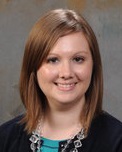Appellate Decision Cautions Land Use Board Members Against Ex Parte Communications with Applicants
Feb 25, 2019 | Written by: | Share
On appeal in Sternas v. DMH2, LLC, A-2051-16T4 (Feb. 4, 2019), the Appellate Division considered whether the Class II Planning Board member, who was also the municipal engineer, had a conflict of interest due to ex parte communications with an applicant.
The Township’s engineer acted as the Class II member to the Board, and a Class II member is required to be a municipal official appointed by the Mayor pursuant to N.J.S.A. 40:55D-23(a). Thus, the municipal engineer is also a municipal official.
During the hearings on the application, the municipal engineer stated that he had ex parte communications with the applicant, but that such communications only involved giving directions to the applicant on the proper forms and mapping to submit to the board. The engineer was never sworn in to testify and did not provide any documentation of such communications to the Board. The Board approved the application on a 5-4 vote, wherein the engineer voted to approve the application. An objector to the application appealed the approval to the Superior Court, which upheld the approval.
The Appellate Division remanded for a hearing regarding whether the ex parte communications necessitated recusal of the municipal engineer. In doing so, the Appellate Division took note of several cases. First, in Smith v. Fari Haven Zoning Bd. of Adjustment, 335 N.J. Super. 111 (App. Div. 2000), the matter was remanded to the applicable board for a hearing to supplement the record where board members had ex parte communications with the applicants during a site visit. In Neu v. Planning Board v. Twp. of Union, 352 N.J. Super. 544 (App. Div. 2002), the trial court accepted certified statements from board members that attended a meeting with the applicant to discuss a report on alternative water systems. The trial court determined that the subject ex parte communications only concerned such report and were fully disclosed at hearings on the application. Therefore, in this case, the Appellate Division determined that additional fact-finding was needed and cautioned that “there should not be ex parte communications between board members and interested parties pertaining to the merits or lack of merit of an application. Recusal is required if there is evidence that communications involved the merits of a specific application.”
Although the Appellate Division recognized that it is permissible for the municipal engineer to serve on the Planning Board, it questioned the practicality of such an appointment. The Appellate Division importantly noted that an official like the municipal engineer “may become involved in the processing of certain applications that may be heard by the Board. Nonetheless, ex parte conversations between a Class II member and an applicant or its representative must be avoided. Recusal of a Class II member is required if there is evidence such member and an applicant discussed the merits of a particular application ex parte.” As a result, the Appellate Division reversed the trial court’s judgment upholding the Verona Township Planning Board’s (the “Board”) site plan approval for a mixed used building.
A municipal engineer often must provide advice to planning board applicants and must work closely with applicants and their professionals to ensure that conditions of approval are met. Therefore, a prohibition on ex parte communications between the Class II planning board member and applicants may render a municipal engineer’s appointment as a member of the planning board impractical.
Tara St. Angelo, Esq. concentrates her practice primarily in the areas of municipal and land use law. She was named to the NJ Super Lawyers Rising Stars list for State, Local and Municipal law by Thomson Reuters in 2017 and 2018. Contact Ms. St. Angelo at Gebhardt & Kiefer, PC at 908-735-5161 or via email.
If you have a suggestion for a future blog topic, please feel free to submit it via the Contact Us form.

